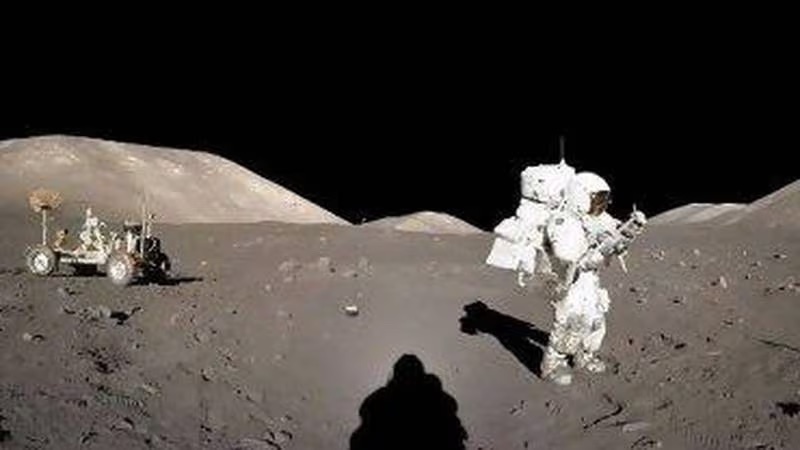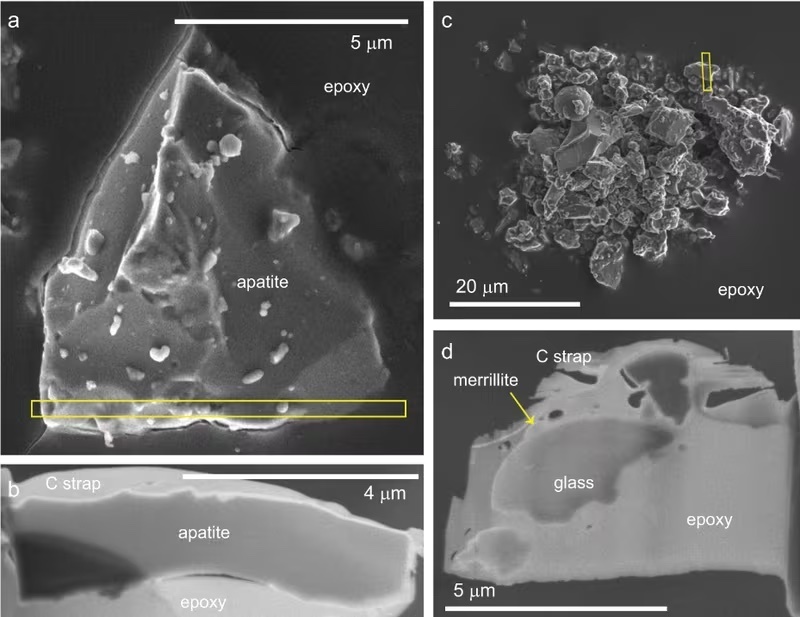26.11.2023
Discovery comes as there is a renewed interest in the Moon, with space agencies trying to send astronauts there for longer stays

Apollo 17 astronuat Jack Schmitt standing on the surface of the Moon while holding a rake full of rock samples. Getty Images
Scientists working on lunar soil samples brought back from an Apollo mission have discovered the presence of hydrogen, suggesting that water found on the Moon could be used to make rocket fuel.
The detection of hydrogen adds on to previous studies which have shown that water was possibly trapped in glass beads spread across the lunar surface.
Its discovery could be a crucial resource for astronauts who set up base on the Moon because rocket fuel can be made with water via electrolysis, where you split hydrogen with oxygen.
The latest study was carried out by the US Naval Research Laboratory (NRL) and findings were published in science journal Nature on November 15.
“Hydrogen has the potential to be a resource that can be used directly on the lunar surface when there are more regular or permanent installations there,” said Dr Katherine D Burgess, a geologist in NRL’s materials science and technology division.
“Locating resources and understanding how to collect them prior to getting to the Moon is going to be incredibly valuable for space exploration.”

The Apollo 17 lunar soil samples that were studied in the study. Photo: NRL
Sample 79221 was brought back from Apollo 17 - the last mission under the Apollo programme that took place more than 50 years ago.
It comes as there is a renewed interest in the Moon, with space agencies trying to send astronauts there for longer stays.
Nasa's Artemis programme aims to send astronauts to the Lunar Gateway - a planned station that would orbit the Moon.
The astronauts would then descend on to the lunar surface and carry out experiments.
"Water on the surface of the Moon is a potentially vital resource for future lunar bases and longer-range space exploration," the study published in the Nature journal said.
"Effective use of the resource depends on developing an understanding of where and how within the regolith the water is formed and retained."
The Open University said on its website that if the sunlit regions of the Moon were used to harvest solar panels, enough energy could be produced to use electrolysis to make rocket fuel from water.
"The Moon has less gravity than the Earth, so less fuel is required to escape the lunar surface," the university said.
"If we were able to get to the Moon and set up the equipment, it might be possible to return to Earth using rocket fuel made from lunar water (assuming there is enough water available)."
Companies are also trying to take part in the lunar economy, as they try to extract resources and sell them to agencies or other organisations.
Nasa, for example, contracted four companies in 2020 to collect lunar sample resources and transfer ownership to the agency. The contract with these companies was worth $25,001.
Quelle: The National
